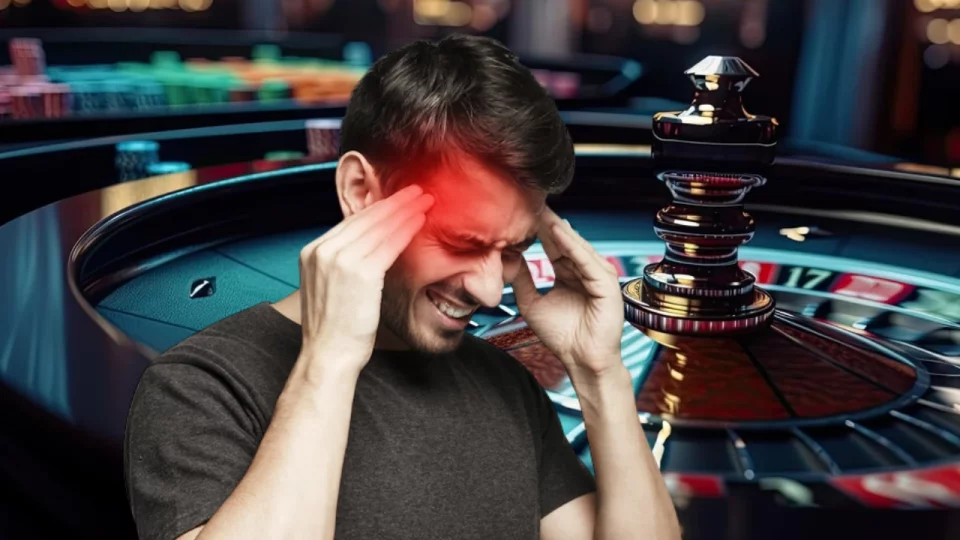For centuries, gambling has been a test of chance, strategy, and nerves.
Whether it’s the roll of dice, the spin of a roulette wheel, or a hand of poker, gamblers enter the arena with one universal hope: to win. But for every high-flying victory, there are losing streaks—persistent runs of bad luck that seem to defy the odds and push players to their mental and emotional limits. What separates the gambler who walks away from the one who doubles down in the face of continued losses? The answer lies in the psychology of losing streaks, a complex web of rationalizations, cognitive distortions, and emotional coping mechanisms that keep gamblers in the game.
Table of Contents
The Emotional Impact of Losing Streaks
Losing streaks are more than just a series of unfortunate events—they’re an emotional rollercoaster. Every loss chips away at the gambler’s confidence, creating feelings of frustration, anxiety, and even despair. For many, gambling is not just about money; it’s tied to ego, identity, and a sense of control over their fate.
When faced with a losing streak, gamblers often experience what psychologists call “loss aversion.” This principle, derived from behavioral economics, suggests that losses are psychologically more painful than equivalent gains are pleasurable. In gambling, this aversion manifests as an overwhelming urge to “win back” losses to restore emotional equilibrium.
This emotional turbulence creates fertile ground for cognitive distortions, which serve as mental shortcuts or irrational beliefs that gamblers use to rationalize their continued play.
Cognitive Distortions and Irrational Beliefs
- The Gambler’s Fallacy
- One of the most pervasive cognitive distortions in gambling is the gambler’s fallacy. This is the belief that past outcomes influence future results in games of chance. For example, after a series of losses, a gambler may think, “I’m due for a win.” In reality, each event is independent, and the odds remain unchanged, but this fallacy creates a false sense of hope that fuels continued betting.
- The Illusion of Control
- Gamblers often overestimate their influence over random outcomes. This is known as the illusion of control, where players believe their actions—like choosing specific numbers in roulette or rolling dice with a particular technique—can affect the outcome. During losing streaks, this illusion becomes a psychological crutch, giving players the sense that they can turn things around with the “right” strategy or approach.
- Confirmation Bias
- Gamblers also fall victim to confirmation bias, the tendency to focus on information that supports their beliefs while ignoring contradictory evidence. For example, a gambler on a losing streak might remember the one time their persistence paid off, conveniently ignoring the countless times it didn’t. This selective memory reinforces the belief that their luck will eventually change.
- Near-Miss Effect
- The near-miss effect is another powerful psychological force in gambling. Losing streaks are often peppered with close calls—spinning the roulette wheel and landing next to the winning number, or being one card short of a winning poker hand. These near-misses can feel like partial victories, tricking the brain into thinking that a win is just around the corner.
Emotional Coping Mechanisms
When losing streaks persist, gamblers employ emotional coping mechanisms to justify their behavior. These mechanisms are not just excuses; they are deeply ingrained psychological tools for self-preservation.
- Chasing Losses
- The most common response to a losing streak is to “chase losses.” This involves betting larger amounts in an attempt to recover previous losses. While this strategy rarely works, it provides a temporary sense of hope and purpose, distracting players from the pain of their losses.
- Reframing the Experience
- Some gamblers reframe their losses as part of the journey. They may think, “I’m paying for the entertainment,” or, “These losses are just the cost of learning.” This reframing reduces the emotional sting of losing and allows them to continue gambling without feeling as though they’ve failed.
- Externalizing Blame
- Another coping mechanism is to externalize blame, attributing losses to external factors like bad luck, faulty equipment, or even the actions of other players. This externalization protects the gambler’s ego and prevents them from confronting the reality of their situation.
The Role of Neurochemistry
The psychological impact of losing streaks is further compounded by neurochemical processes in the brain. Gambling activates the brain’s reward system, releasing dopamine, a neurotransmitter associated with pleasure and motivation. Interestingly, research shows that the anticipation of a reward can release as much dopamine as the reward itself.
During a losing streak, the brain continues to crave that dopamine hit, creating a cycle of compulsion. Even when losses mount, the gambler’s brain keeps them engaged, driven by the hope of recapturing the euphoric highs of winning.
Breaking the Cycle: Can Gamblers Escape Losing Streaks?
Understanding the psychology of losing streaks is the first step toward breaking the cycle. Gamblers need to recognize the cognitive distortions and emotional coping mechanisms that keep them trapped. Here are a few strategies to mitigate the impact of losing streaks:
- Setting Limits
- Establishing strict limits on time and money spent gambling can prevent the spiral of chasing losses. These limits should be adhered to regardless of winning or losing streaks.
- Seeking Professional Help
- For those struggling with compulsive gambling, therapy and support groups like Gamblers Anonymous can provide valuable tools for managing behavior.
- Practicing Mindfulness
- Mindfulness techniques can help gamblers stay present and make rational decisions rather than acting impulsively in the heat of the moment.
- Educating Gamblers
- Raising awareness about the randomness of gambling outcomes and the cognitive biases at play can empower individuals to make more informed choices.
